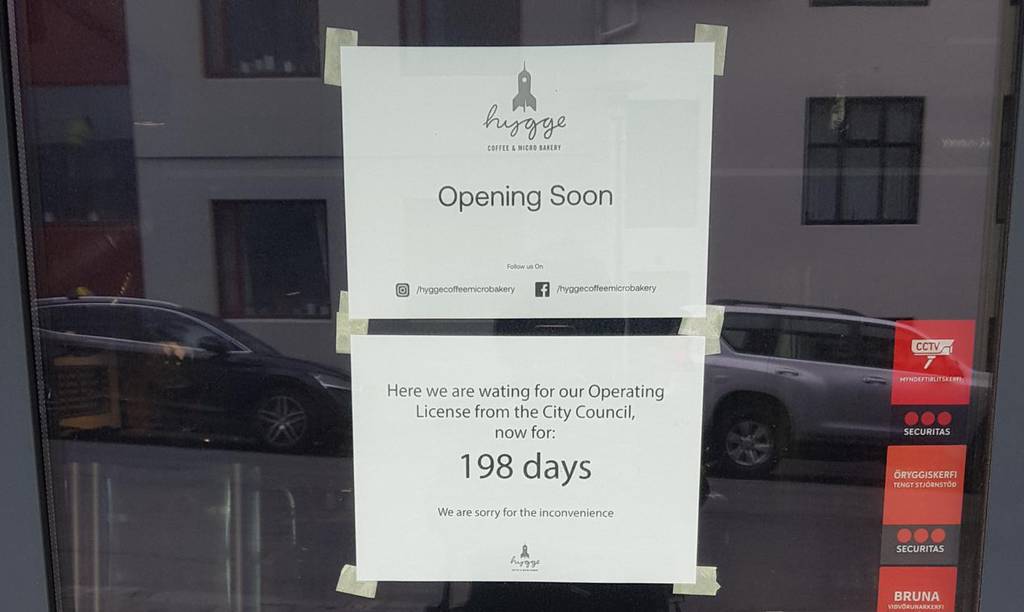Are we really equipped to resist the American recession? The quarrels out of time between Rome and Paris

In addition to the duties, it is necessary to understand what other forms could take the attempt to coercion US to Europe. Central bankers are talking about Swap Lines: dollar liquidity windows between Fed and ECB
(This text was published in the Whatever It Takes newsletter, by Federico Fubini; to receive it just register here; you can write to the author here).
I am quite seasoned to remember how the president of the Eurogroup reacted, Jean-Claude Juncker, when in February 2008 the International Monetary Fund lowered its growth estimates of the euro area. Then the financial fever dragged on Wall Street for months, the United States had been in recession, the Bank of business Bear Stearns strangled. And Juncker, later president of the European Commission, reacted With annoyance to the FMI that had filed the growth forecasts on the euro area from 2% to 1.6%: « not credible at all ». He was right: theThe fund was wrong, but in the opposite direction to what Juncker meant; At the end of the year the euro area recorded a 0.4%then in 2009 he fell less 4.5% (almost double the worst of the United States, from which the crisis was born). Thus the euro crisis started.
That atmosphere of presumption and complacency of the crisis in my mind returns to me today that Europe observes the skids of Donald Trump on the duties. The message to the world, not too implicit, is: we are sharpening, on us you can count. But we really are sheltered from an American recession, which the head of Blackrock Larry Fink already has announced? Are we sure that a crisis of credibility of the dollar or American public debt would leave the euro area and its most fragile countries unscathed?
These questions count today, among others, for two reasons. The first is that, unlike the year 2008 and following, the American administration does not seem to keep the stability of the euro area; Vice -president JD Vance could no longer be clear In this regard, the Berlin Security Conference. The second factor is that compared to 2008, but from before the return of Trump, we live in the era of economic coercion: governments use it more and more often against other powers to get to their political objectives. The climate is therefore different and, in some respects, has not improved since then. So For Europe it is time to shake. Runs risks. But it may have any opportunitiesif his « leaders » finally decided to deserve such a definition. We see.
Deepen with the podcast
The figure of time
That economic coercion is the figure of time, with the use of financial, commercial or technological means to bend other countries, is indisputable. It may like it or not, but but The tools of the golden thirty years of post-1989 globalization today appear archeology: Then the disagreements were managed in multilateral bodies with shared rules such as the G7, the G20, the IMF, the World Bank, the World Trade Organization or perhaps the Paris Club for the debt of poor countries.
In the era of the duties of Trump and Xi Jinping, of the war of aggression of Vladimir Putin, this system officially survives. But it is empty as the armor of Italo Calvino’s « non -existent knight ». Or like the society of the nations between the two wars. Today they count the pressure capacity with the tools of money, of the payment system, access to the market, they count access to technologies, data, social media or penalties against individuals or organizations. The duties are the most rough of the weapons of coercion, but this involves all the innovations of the century.
Examples? Economic coercion is when the Trump administration tries to force Ukraine to accept an agreement on the sale of the mining deposits in draconian termsunder the threat of the withdrawal of the American support for Kiev’s anti -missile defenses. Coerction is also when China tries to oblige Russia to sell its oil or gas below costin exchange for the supplies of technologies of the People’s Republic necessary for the Cremlin military-industrial apparatus. It is also when the American treasure secretary Scott Beesent, in the middle of the clash on the duties, makes it clear that the United States could expel the listed Chinese companies from Wall Street. Or when Russia tries to bend the will of European countries in helping Ukraine reduce and cutting the gas supplies in 2021 and 2022. Or even when China is done yield a port of Sri Lanka in a strategic position in the Indian Ocean, after lending so much that the Sri Lanka debtor default. But economic coercion are also the tens of thousands of sanctions on companies, products and individuals, With which democratic countries try to slow down Russia’s aggression to Ukraine (a useful approach, in the absence of better alternatives).
The list could continue. It is not a new phenomenon, if anything it is its intensity in this century. Moreover, it is consistent with a world in which international law remains the facade, behind which almost the main powers apply the right of the strongest. To focus this trend is Abraham Newman of Georgetown University: a scholar of international relations, not an economist. In his book with Henry Farrell who founds a new research field («Underground Empire: How America Weaponized the World Economy « « The underground empire: like America uses world economy as a weapon », 2023), Newman claims that the United States were the first to reintroduce economic coercion especially after 11 September 2001. It also happened under Joe Biden – I add – with various failures. His administration tried to curb Chinese progress in artificial intelligence, prohibiting the sale in the People’s Republic of advanced semiconductors and machinery to produce them. The Dutch giant ASLM had to stop sales in China of lithographic systems for semiconductors, with vast turnover losses, so as not to be cut off the United States. Results? Nulli. Without the ASML machines or without the American semiconductors of Nvidia, Chinese researchers have developed to develop Deepseek: an equally efficient but much less expensive system than the Californian chatgpt. AND From this year the study of artificial intelligence from the first grade has become mandatory in the People’s Republicprecisely to make the country less vulnerable to any form of technological coercion.
« Review the liberal order »
I looked for Professor Newman to understand how he sees this trend under Trump. He said to me: «He wants to review the liberal international order, he does not like the rules that limit him. The duties are an attack on this order and an attempt to fix new rules of the game: each country, if it wants to get out of the pressure of the duties, will have to negotiate individually with the United States. Each government will have to go to Washington and ask for an exception, a special treatment – Newman told me -. Thus Trump aims to establish domination relationships with the various countries and also with individual companies: they will have to pay a tribute From which he can extract resources, if anything to redistribute to the allies if he believes it ».
Fed-Bce agreements
It remains to be understood, in addition to the duties, what other forms could take the attempt to coercion to Europe. As for this, the central bankers of the main countries are talking a lot in these weeks of the Swap Lines: The dollar liquidity windows between Federal Reserve and European Central Bank. The availability of loans in dollars is essential for commercial banks everywhere in the world due to the role of the green ticket as a large reserve and international exchange currency. Even European private institutions have part of their dollar funding, usually on the expiry of a few days or two weeks, and normally refund by accessing new loans in the same currency. In a crisis, however, confidence collapses and liquidity stops circulating – each institution holds its own for itself – therefore only the central bank can prevent a private bank for a default or go under stress on its debts, lending them freely. But the ECB does not print dollars. It cannot lend them if it does not access a swap line with the Fed (« exchange line »: in exchange for euros the Fed provides dollars to the ECB, which transfers them to the European banks). Because of this There is an agreement of the Fed with its own parish priests of Frankfurt, Tokyo, London or Bern: In 2008 the Swap Lines arrived at transfer 583 billion dollars and during Covid 449 billion. Without this, who knows what other Bear Stearns or Lehman the world would have risked.
Today, under Trump, those swaps no longer appear so obvious. We need an authorization of the FED congress to be renewed once a year and in the republican congress they rise more and more often voices Against the « rescue » of other countries at the expense of the Americans (you know the Trumpian rhetoric). The White House could be attempted to use the access of third countries to the swaps as a coercion leverage. It would be the renunciation of the function of the dollar as a reserve currency of the world, And of the Fed as a lender of the last instance of the system: it would enter the unknown scenario in which, at least, all the credit would become less abundant and more expensive.
European counterprose
What can Europe do? Against Trump’s destabilizing actions, not much. But it can help yourself with An issue of a large Eurobond to finance European defense and the creation of a real large capital market in euroswhich over time offers the rest of the world an alternative to Wall Street. A Eurobond of at least one thousand billion euros would be bought by the sovereign funds of Asia and the Gulf as (partial) alternative to the dollar. It would strengthen the euro as an international reserve currency. And a single large European bag in euro would offer one (partial) solution to companies around the world – including Chinese included – that no longer trust Wall Street. So we would take a little more sheltered from the attempts to coercion and by the repercussions of a recession or an American financial crisis.
We would not solve everything – the dollar and Wall Street are not easily replaced – but it would be a big step forward. Why don’t we do it? Because we are dazzled by the lights of the Trump race train that threatens to overwhelm us. Because we are stopped by provincialism, jealousies, suspicions and slander between European governments, where one in particular stands out: between Italy and France; Between Giorgia Meloni and Emmanuel Macron (pictured above). Those two are on the same boat, they have the same interests, but fight in a way – from the outside – incomprehensible. Their clash is out of time, they both wrong to feed it. They would both have equal responsibilities, if they do not immediately get together with work because Europe gets ready: not as in 2008.





